Leading U.K. Newspaper The Independent Echoes Delta’s Energy Efficiency and ESG Endeavors to Tackle Dependence on Fossil Fuels
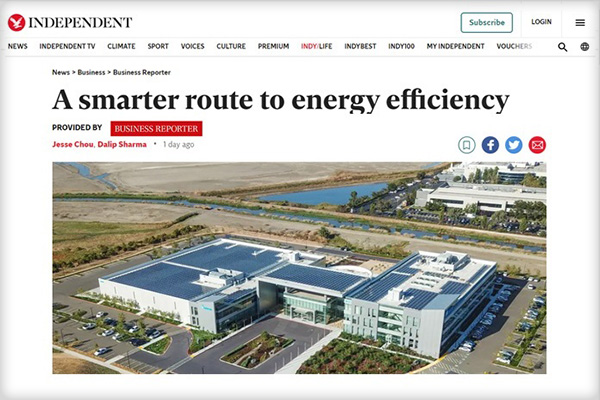
A smarter route to energy efficiency
Geopolitical conflicts and other unexpected events of global scale, such as the Covid-19 pandemic, tend to have a substantial effect on the supply and pricing of fossil fuels in general. Even before oil and gas prices started breaking records, the disruption of global supply chains caused by pandemic-induced lockdowns had already pushed their upward trend, significantly affecting the global economy.
As the need for energy continues to rise to support a growing technology-oriented global economy, countries, companies and individuals around the world strive for effective ways to enhance their resilience against risks impacting fossil fuel supplies and price volatility.
Delta Electronics, a Taipei-based technology heavyweight providing power and thermal management systems, automation solutions and electric vehicle (EV) technologies to most of the world’s leading information and communication technology (ICT) and automotive brands, has much experience of nurturing smart energy efficiency, and sees it as a highly effective solution to not only strengthen energy resilience, but also to substantially reduce mankind’s carbon footprint. Here, Jesse Chou, Delta’s chief sustainability officer, and Dalip Sharma, GM and president of the company’s EMEA (Europe, Middle East & Africa) region, elaborate further:
Delta is a major technology supplier to world-class brands in the global ICT and automotive industry. What core competence has allowed you to reach such a privileged position?
Dalip Sharma: Delta’s core competence lies in our unparalleled expertise in high-efficiency power electronics and system integration. Every year, we invest more than 8 per cent of our annual revenues in R&D to enhance the energy conversion efficiency of our products. That’s how today we enable vast energy savings for our global customers in the ICT industry by providing server power supplies, many of them certified as 80 Plus TITANIUM with efficiency over 96 per cent, as well as telecom power rectifiers with industry-leading efficiency up to 98 per cent.
Also, through our strong innovation capabilities, which include over 9,000 engineers currently employed in our 74 R&D centres worldwide, we are increasingly developing solutions that leverage IoT and other next-generation technologies to further the energy-saving capabilities of our portfolio.
Last but not least, Delta’s vision regarding sustainable development has been nurtured for most of our 50-year corporate history, which means that key megatrends, such as electric vehicles (EV), were part of our strategic focus much earlier than they were for our peers. In fact, we started co-operating on joint R&D efforts with leading automakers for EV-related solutions more than 10 years ago, and today we bear the fruits of that collaboration by providing essential traction and power systems as well as automotive fans. Moreover, Delta has also shipped more than one million EV chargers to its worldwide customers in joint efforts to build the essential infrastructure for e-mobility to thrive. We are also offering customers our energy storage solutions with bi-directional power-conditioning capabilities, which can enable smart energy management in their EV charging sites and provide support to local electricity grids.
What’s your ultimate goal as a company?
Jesse Chou: Delta’s corporate mission is “To provide innovative, clean and energy-efficient solutions for a better tomorrow,” which entails the development of next-generation solutions that help mankind enable the pillars of smart green cities, such as e-mobility, smart factories and buildings, energy-efficient ICT infrastructure as well as green energy infrastructure.
To achieve that goal, Delta is also focused on becoming a world-class corporate citizen that “walks the walk” by implementing environmental, social and corporate governance (ESG) best practices in its own operations. Last year, we joined the global RE100 initiative with a commitment to operate with 100 per cent renewable electricity and to become carbon-neutral by 2030. We implemented Science Based Targets (SBTs) in 2017, and in 2021 Delta achieved its original goal of a 56.6 per cent reduction in carbon intensity, four years ahead of schedule. Between 2011 and 2020, we implemented 2,270 energy conservation projects in our factories to ultimately save almost 280 million kWh of electricity – with, for example, energy recovery in burn-in processes, smart automation of HVAC systems and lighting, as well as energy-efficient LED lighting systems – all possible with Delta’s own product and solution portfolio. Thus, our unique and proven expertise in energy conservation in our own factories and office buildings gave us the confidence to commit to 2030, way ahead of the 2050 deadline most technology firms are targeting.
The global economy, and Europe in particular, will likely bear a major impact from current fossil fuel supply uncertainties and sky-high prices. What do you believe are the most valid ways for countries, corporations and even individuals to ease the impact of such negative conditions?
Dalip Sharma: Enhancing energy conservation by using energy-efficient products and solutions is undoubtedly one of the most effective ways to strengthen our resilience against the inherent risks, as well as financial and environmental costs, of fossil fuels. Just to give you an example, the energy savings achieved for our customers between 2010 and 2020 by Delta’s high-efficiency products and solutions are estimated at 33.5 billion kWh of electricity, which is more than half the electricity consumed by the entire German economy in a whole month.
Making decisive commitments to the use of renewable energy is another option. In line with the RE100 initiative, we have stepped up our efforts to achieve that historic milestone. In 2018, Delta only had close to 109 million kWh of green electricity in its entire global operations energy mix. By 2020 we had already increased it threefold to over 310 million kWh, almost halfway to our 2030 objective. Installing solar PV systems in our factories’ rooftops, signing power purchase agreements (PPA) and procuring renewable energy certificates (REC) are some of the key initiatives we are leveraging to achieve this environmental goal.
Jesse Chou: Buildings consume close to half the world’s electricity, so reducing their consumption through enhanced energy efficiency is also a major contributor to energy resilience in Europe and beyond. Thus, since 2006, we have been promoting the benefits of green buildings in regards to energy conservation by creating 29 of them around the world as of today.
By leveraging Delta’s smart building automation for HVAC, LED lighting, solar PV systems, energy storage, high-efficiency uninterruptible power supplies (UPS) and even electricity regeneration for elevators, these green buildings deliver considerable energy and OPEX savings. For example, Delta’s LEED Platinum-certified HQ for the Americas region, located at the heart of Silicon Valley in California, saves up to 94 per cent of the electricity used by a traditional office building in the area. We’re also enhancing the facility’s on-site solar energy generation systems with the aim of eventually making it a net-zero energy building, meaning it can satisfy its own electricity needs throughout the year. Also, our LEED Platinum-certified global HQ in Taipei, built in 1999, was retrofitted with the same Delta energy-saving solutions, reducing its energy needs by more than 50 per cent for the past five years.




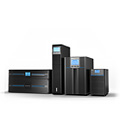
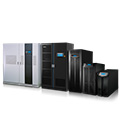
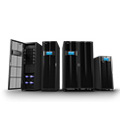
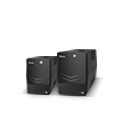
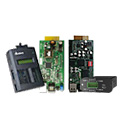

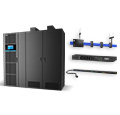
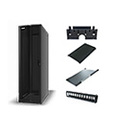
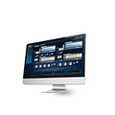
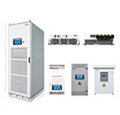
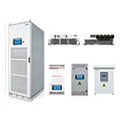

















.gif)